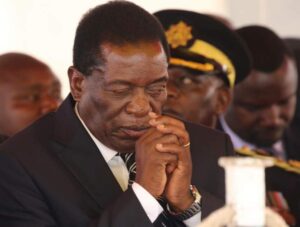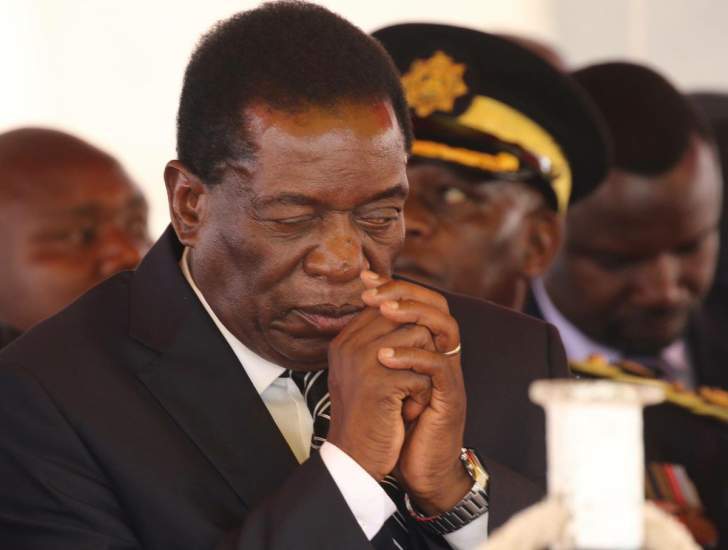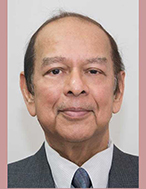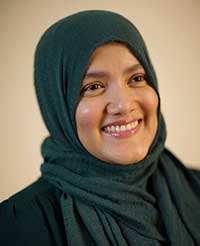

One such bright “chap” was Todd Moss, an assistant secretary, and three other southern Africa experts. Their report about President emmerson Mnangagwa came out in the US on July 25, six days before the Zimbabwe 2018 elections.
ED (as our president is called by his friends) had been coached by British Ambassador Katriona Laing, an M-IV intelligence officer with special skills in regime change. As long as Ms Laing was holding eD’s hand, he said the most wonderful things and convinced the world that under his wise leadership, Zimbabwe would come out of the woods.
The report by Moss and his colleagues said that all those (and the British) who believed such nonsense, that a leopard can change its colours, were in for a long riede (supposedly on the back of the same leopard). They said that the idea that eD was a reformer was a lost cause.
I was devastated. At that time eD had made the most wonderful statements. I flew home with four investment portfolios under my arm. We had access to US$1 million for a dry-run experiment, but our goal was to raise US$3 billion. There was a Zimbabwean investment company in Birmingham which had US$400 million which served as our role model.
That company worked with the national Railways of Zimbabwe, but as we speak, has migrated (with its bags of money) to South Africa.
I was devastated. I should have listened to that Todd Moss “chap”. The report says that all the talk about reforms is a “charade” (word in the report) probably concocted by Ms Laing.
ED’s lack of projection
I came to this topic when I got an email from Hopewell Chin’ono in simple words. “Mukoma Ken, long time.” I feared the worst. When I checked the brother was in some stupid jailhouse, over a crime that was not in the crime books. This was the third time in 12 months.
After calming my tempestuous heart, I returned to reading the US reports on Mnangagwa’s government. A report from some senators who had just returned from Zimbabwe said that eD is surrounded by “thugs”.
Zimbabwe minister of Security Owen Mudha ncube is, in this report, alleged to be the capo-del capo of maShurugwi machete gangs. The name describes their activities. Serious though this allegation is, the second allegation was that this Mudha (Congressmen pronounced the name to mean a devil) had gone on rampage at Gaika Mine, destroying a 100-year-old mine structure.
When you add the name of nick Mangwana and George Charamba to the team whose job is to project eD’s mission to Zimbabweans and to the world, one comes out with a very sorry picture.
If the devil were served by such a projection team, all sinners would have long migrated to the Cross.
Again, here, those whose business is to project government policies need to study Obama’s projection by the press.
Policies
Alex Magaisa has argued that before one can project a leader, there must be something there to project. I agree and I also appreciate that there was a lot to project about Obama: a clean and seductive smile, no scandal behind his name, soaring black rhetoric and a lovely family.
ED may not have Obama’s natural gifts, but he (and perhaps Ms Laing had crafted for him) a pretty convincing message. Allow me to repeat the message.
“Fellow Zimbabweans…the time has come to say nO to demigods and people that are self-centred and only think of themselves and their families. Let us now put our differences and rebuild a new prosperous Zimbabwe, a country that is tolerant to divergent views, a country that respects opinions of others, a country that does not isolate itself from the rest of the world, because of a stubborn individual, who believes he is entitled to rule this country until death.
We want a country that gives every citizen the opportunity to prosper, to take care of their families, a country that encourages Zimbabweans to invest in their economy and contribute to the development of infrastructure for their future.” (Mnangagwa//Exile//Nov 2017).
The above words summarise what a normal country looks and sounds like. Zimbabweans want a normal country. There are no police roadblocks in Malawi. Kids are not in jailhouses in Malawi. Here is a University of Zimbabwe kid, Allan Moyo, has been in jail for 71 days. Moyo, in an attempt to impress his girlfriend, said some bad words about “overthrowing” the Zimbabwean government. His weapon was a dirty handkerchief which he used to pierce the sky as if he was holding a spear.
Please have some imagination. It would have done a lot of good to lock up the kid for criminal mischief in an open-fenced yard and provide him with ice-cream until his mother came to pick him up. The member-in-charge would welcome the distressed mother with kind words.
“Mum, we want to see your kid graduate. Take him home and talk to him. I hope I do not see you and him here again.”
I am sure Todd Moss and brother Magaisa will say: “Ken, your trouble is that you don’t know these people. They are heartless.”
I agree. I have no experience of their Philistine world, except what I read that loyalty is unknown among them, mercy is distinguished by its absence, common sense is a curse word and love that passes all understanding is regarded as a weakness. Moss concludes in one report that all the talk about Zimbabwe is “open for business” is nothing but a “charade”.
I hope there is something left for us to redeem.
—–
Ken Mufuka is a Zimbabwean patriot. He can be reached at mufukaken@gmail.com. His books are available in Zimbabwe from INNOV bookshops and from the world on kenmufukabooks.com
All articles and letters published on Bulawayo24 have been independently written by members of Bulawayo24’s community. The views of users published on Bulawayo24 are therefore their own and do not necessarily represent the views of Bulawayo24. Bulawayo24 editors also reserve the right to edit or delete any and all comments received.


